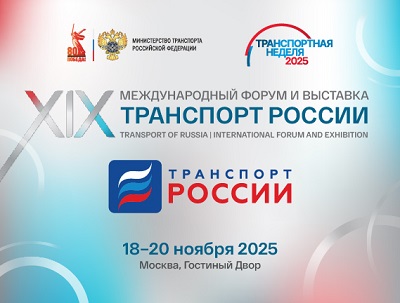Comprehensive optimization of passenger trains operation based on an automated system for managing the profitability of passenger traffic
https://doi.org/10.21780/2223-9731-2020-79-6-343-350
Abstract
The article is devoted to solving the problem of optimizing the tariff policy, which is relevant for the passenger complex, with the most rational use of the rolling stock. Principles of economic and mathematical modeling are presented in order to determine the optimal number of cars in passenger trains and prices for travel in a single calculation process called complex optimization. Developed models make it possible to form optimal train schemes in accordance with the predicted demand, balancing supply and demand for transportation, which, in turn, radically increases its economic efficiency. Simultaneously with finding the optimal schemes by the method of complex optimization, such fares are determined at which the balance of supply and demand is achieved with the maximum possible economic effect. The article discusses the analytical models of passenger demand, the principles of implementation of the complex optimization procedure, the problems of forecasting passenger demand and the features of calculating the forecast of demand for the example of train No. 17/18 “Karelia” on the Petrozavodsk—Moscow route, and also offers a solution to the problem of determining the optimal prices and train schemes. On the example of real data of the operation of this train, the effectiveness of the automated system for managing the profitability of passenger traffic, created on the basis of complex optimization algorithms, was evaluated. It is shown that the developed analytical models of passenger demand allow solving optimization problems that increase the efficiency of automated control systems for the economic indicators of the transportation process, and the multi-model forecasting system provides satisfactory accuracy with a high level of forecast detail. Due to the fact that the level of expenses for train journeys radically affects the result of optimization of the transportation process with variable train schemes, the adopted optimization criterion takes into account both income and transportation costs. The results of calculations are presented showing that the complex optimization procedure for the “Karelia” train could give a significant additional financial result.
About the Authors
G. L. VenediktovRussian Federation
Gennadiy L. Venediktov, Cand. Sci. (Eng.), General Director
St. Petersburg, 194291
V. M. Kochetkov
Russian Federation
Valeriy M. Kochetkov, Cand. Sci. (Phys.-Math.), Project Manager
St. Petersburg, 194291
References
1. Talluri K.T., van Ryzin G.J. The Theory and Practice of Revenue Management. Boston, Kluwer Academic Publishers, 2004, 713 p.
2. Venediktov G.L., Kochetkov V.M. Povyshenie rentabel'nosti passazhirskikh zheleznodorozhnykh perevozok metodom kompleksnoy optimizatsii [Increasing the profitability of passenger railway transportation by the method of complex optimization]. Railway Economy, 2013, no. 11, pp. 12–24.
3. Venediktov G.L., Kochetkov V.M. Ekonomicheskie modeli povysheniya dokhodnosti pri zhestkom ogranichenii predlozheniya [Economic models of increasing profitability under strict supply constraints]. Economics and Mathematical Methods, 2012, Vol. 48, no. 1, pp. 111–118.
4. Venediktov G.L., Kochetkov V.M. Effektivnye metody prognozirovaniya passazhirskogo sprosa na zheleznodorozhnom transporte [Effective methods of forecasting passenger demand on railway transport]. Railway Economy, 2016, no. 6, pp. 36–45.
5. Miroshnichenko O. F., Venediktov G. L., Kochetkov V. M., Pastukhov S.S. Realizatsiya ekonomiko-matematicheskikh modeley v avtomatizirovannykh sistemakh upravleniya rentabel'nost'yu passazhirskikh perevozok [Implementation of economic and mathematical models in automated control systems for the profitability of passenger traffic]. Vestnik VNIIZhT [Vestnik of the Railway Research Institute], 2011, no. 4, pp. 33–39.
6. Miroshnichenko O.F., Venediktov G.L., Popov E.V. Povyshenie effektivnosti zheleznodorozhnykh perevozok na baze avtomatizirovannoy sistemy upravleniya rentabel'nost'yu [Improving the efficiency of railway transportation on the basis of automated profitability management system]. Zheleznodorozhnyy transport, 2011, no. 12, pp. 56–60.
7. Ayvazyan S.A., Mkhitaryan V.S. Prikladnaya statistika i osnovy ekonometriki [Applied statistics and foundations of econometrics]. Moscow, Uniti Publ., 1998, 1022 p.
8. Efimov S.M. Metodika analiza faktorov, opredelyayushchikh spros na passazhirskie perevozki [Method of analysis of factors determining the demand for passenger transportation]. World of Transport and Transportation, 2015, Vol. 13, no. 2, pp. 114–120.
9. Van Westendorp P. NSS-Price Sensitivity Meter (PSM) — A new approach to study consumer perception of price. Proceedings of the ESOMAR Congress (Venice, September 5–9, 1976). Venice, 1976, pp. 139–167.
10. Box G., Jenkins G., Reinsel G., Lyung G. Time Series Analysis: Forecasting and Control. Fifth edition. New York, Wiley Pabl., 2015. 712 p.
11. Brockwell P.J., Davis R.A. Introduction to Time Series and Forecasting. New York, Springer Pabl., 2002, 434 p.
12. Kantorovich G.G. Analiz vremennykh ryadov [Analysis of time ranges]. Higher schools of Economics economic journal, 2002, Vol. 6, no. 2, pp. 251–269.
13. Diebold F.X. Elements of Forecasting. [S. l.], South-Western College Pub, 2007, pp. 129–384.
14. Minashkin V.G., Sadovnikova N.A., Shmoylova R.A. Otsenka tochnosti i nadezhnosti prognozov [Assessment of the accuracy and reliability of forecasts]. Biznes-statistika i prognozirovanie: ucheb.-prakt. posobie [Business statistics and forecasting: educational and practical manual]. Moskovskiy gos. un-t ekonomiki, statistiki i informatiki [Moscow State University of Economics, Statistics and Informatics]. Moscow, 2008, chapter 16. URL: https://studfiles.net/preview/3490105/page:44 (retrieved on 06.02.2020) (in Russ.).
Review
For citations:
Venediktov G.L., Kochetkov V.M. Comprehensive optimization of passenger trains operation based on an automated system for managing the profitability of passenger traffic. RUSSIAN RAILWAY SCIENCE JOURNAL. 2020;79(6):343-350. (In Russ.) https://doi.org/10.21780/2223-9731-2020-79-6-343-350
























































